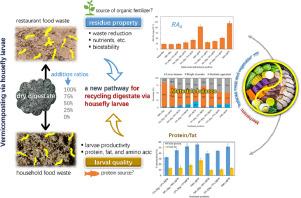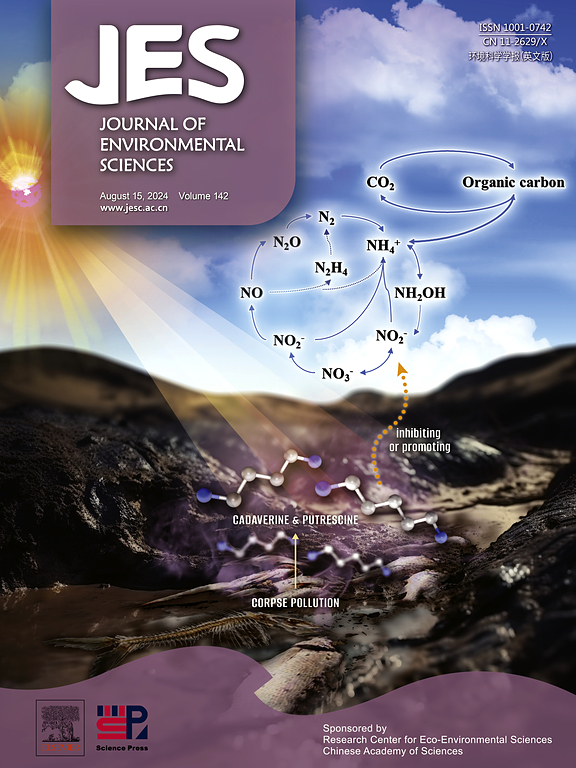Feasibility of housefly larvae-mediated vermicomposting for recycling food waste added digestate as additive
Abstract
The development of methods for the efficient treatment and application of food waste digestate is an important research goal. Vermicomposting via housefly larvae is an efficient way to reduce food waste and achieve its valorization, however, studies on the application and performance of digestate in vermicomposting are rarely. The present study aimed to investigate the feasibility of the co-treatment of food waste and digestate as an additive via larvae. Restaurant food waste (RFW) and household food waste (HFW) were selected to assess the effects of waste type on vermicomposting performance and larval quality. Waste reduction rates of 50.9%–57.8% were observed in the vermicomposting of food waste mixed with digestate at a ratio of 25%, which were slightly lower than those for treatments without the addition of digestate (62.8%–65.9%). The addition of digestate increased the germination index, with a maximum value of 82% in the RFW treatments with 25% digestate, and decreased the respiration activity, with a minimum value of 30 mg-O2/g-TS. The larval productivity of 13.9% in the RFW treatment system with a digestate rate of 25% was lower that without digestate (19.5%). Materials balance shows that larval biomass and metabolic equivalent had decreasing trends as the amount of digestate increased and HFW vermicomposting exhibited lower bioconversion efficiency than that of RFW treatment system regardless of the addition of digestate. These results suggest that mixing digestate at a low ratio (25%) during vermicomposting of food waste especially RFW could lead to considerable larval biomass and generate relatively stable residues.


 求助内容:
求助内容: 应助结果提醒方式:
应助结果提醒方式:


